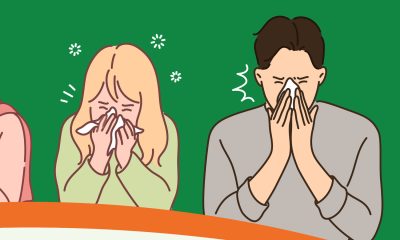By Mark Waghorn via SWNS
Men suffer worse domestic violence than women, according to new research.
They are more likely to be slashed, stabbed, shot, bitten, burned or mown down by a car, suggests the study.
Women are more prone to being struck or pushed over - suffering more facial bruises.
One in three men will experience physical abuse from a wife or live-in lover in their lifetime, known as intimate partner violence (IPV).
Lead author Dr. Bharti Khurana, of Brigham and Women's Hospital in the US, said: "Our findings are contrary to the general notion that violence perpetrated by women is not capable of causing severe injuries to their partners.
"Moreover, men are less likely to seek help as they are less likely to recognize it as criminal, may see IPV as unmasculine, and fear being ridiculed."
It is estimated that 1 in 4 men in the US will experience rape, physical violence, and/or stalking by an intimate partner, according to the National Domestic Violence Hotline.
Dr. Khurana's team analyzed data from the NEISS ( National Electronic Injury Surveillance System) which covers 100 hospitals across the US.
They evaluated the cause, anatomical location and diagnosis of each self-reported IPV-related injury from 2005 to 2015 - comparing results between men and women.
Significant gender differences were identified. Men were much more likely to have lacerations, most often on their forearms.
They were also more likely to have been cut or pierced, bitten, hit by a motor vehicle, burned or sustained a gunshot wound.
There were also more hospitalizations in male victims. Men constituted 36 percent of all victims over - showing this age group was particularly vulnerable.
Among women, facial bruises were most common. They were more likely to have been hit, or have fallen down.
Dr. Khurana said domestic violence remains severely under-reported in emergency departments - and women represent most logged cases.
The study, published in the journal Aggressive Behaviour, is the first of its kind - helping fill a void that has left doctors unprepared to assist male victims. It outlines key injury trends for them to look out for.
Dr. Khurana said: "Biases suggesting IPV predominantly affects women may also cause medical professionals to overlook related injuries in male patients."
Notably, only participants that disclosed they were victims of IPV at the time of injury were included in the study.
Most don't reveal the origins of their wounds in the emergency department, meaning many cases go undetected.
Previous research found 35 percent of men reported an injury severe enough for hospitalization. Just half (18 percent) sought medical assistance.
Social stigmas may also dissuade men from getting help, added Dr. Khurana.
In future, she hopes to incorporate the research into medical training. She has already begun educating the radiology community and instructing staff on what to look for in patients injuries.
Dr. Khurana said: "What we are seeing is still the tip of the iceberg as very few patients will report IPV at the time of injury.
"Identifying these injuries would allow us to provide patients with resources."
Previous research found 35 percent of men reported an injury severe enough for hospitalization. Just half (18 percent) sought medical assistance.
Figures from the UK's Office for National Statistics show a quarter of all domestic abuse crimes recorded by the police were committed against men - 155,000 annually.
But only four percent of victims are being supported by local domestic services.
One in two male victims fail to tell anyone - compared to a fifth of women
One in nine have considered taking their life due to partner abuse.
Between 2015 and 2020, an average of 12 and 74 men and women a year, respectively, were killed by a partner or ex-partner.
In the UK, police have seen a 10 percent increase in reported cases of domestic abuse during the pandemic. Calls to helplines have also risen sharply.

 Parenting1 week ago
Parenting1 week ago
 Lifestyle1 week ago
Lifestyle1 week ago
 Wildlife3 days ago
Wildlife3 days ago
 Good News4 days ago
Good News4 days ago
 Health4 days ago
Health4 days ago
 Entertainment24 hours ago
Entertainment24 hours ago
 Work2 days ago
Work2 days ago
 Travel4 days ago
Travel4 days ago




















